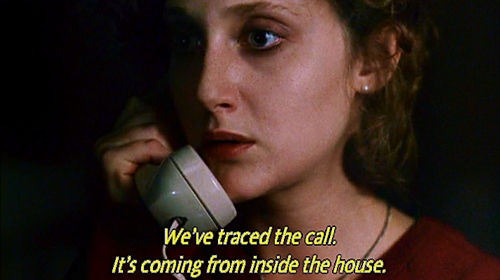Redbox, the popular movie-rental terminals outside of your local grocery store, has begun reselling download codes for popular movies, including Disney’s Beauty and the Beast, Frozen, and its three newest Star Wars films.
You know the ones. When you buy a Blu-ray or DVD (why are you still buying DVDs? It’s 2018!) from Disney, it comes bundled with a piece of paper inside, affixed with a special code allowing you to download a digital copy of that same movie on [Redeem Digital Movies] and [Movies Anywhere]. This allows you to watch the movie on your computer, phone, tablet, video game console, or TV-streaming-box.
Redbox has viewed these disc-and-code bundles as two separate products. Thus, Redbox purchased Disney Blu-Rays and DVDs, coupled with digital codes. from ordinary retail outlets. Redbox would then allow consumers to rent the physical media discs, as it always has. However, Redbox also began reselling the digital codes packaged in its purchases directly to consumers.
As you could probably imagine, Disney did not take too kindly to this, suing Redbox for copyright infringement — specifically for violating the licensing terms that accompany the purchase of these disc-and-code bundles dubbed “Combo Packs.” Disney argued that the physical disc and the digital code are not two separate products, but rather offered together as one product for customer convenience. Indeed, the products come affixed with the language “codes are not for sale or transfer.” Disney’s argument, essentially, was that Redbox had to agree to the terms of that condition in order to un-package the products and gain access to the digital code to begin with. A further claim Disney brought against Redbox was that Redbox is encouraging end-users to infringe on Disney copyrights, thus being liable under the doctrine of contributory infringement. Disney requires consumers “represent” that they own the physical disc that accompanied the download code in order to access the digital movie provided by the digital code.
Federal judge Dean Pregerson recently ruled against Disney in this case, rationalizing his decision with the somewhat obscure doctrine of Copyright Misuse. Copyright Misuse occurs when the copyright holder is abusing their copyright, and applies to prevent the copyright holder from enforcing the copyright. Judge Pregerson held that Disney’s tying of physical disc ownership and digital download codes was inconsistent with the copyright law’s First Sale Doctrine.
Judge Pregerson ruled that merely including the language “codes are not for sale or transfer” on the disc’s box didn’t create a binding contract. Other language included on Disney’s boxes stated that “this product cannot be resold or rented individually.” However, Judge Pregerson noted, correctly, that this is legally incorrect — the First Sale doctrine gives a customer the right to resell copyrighted matter that they legally purchases, regardless of whether the copyright owner wants them to or not.
With respect to Disney’s claims that Redbox was liable for contributory infringement, Judge Pregerson again noted that Disney was at fault for fundamentally tying physical media to digital download codes, holding that “Disney’s copyrights do not give it the power to prevent consumers from selling or otherwise transferring the Blu-ray discs or DVDs contained within Combo Packs.” In Judge Pregerson’s view, Disney’s requirement that owners of a physical disc are the only people that can use digital download codes also means that consumers can’t access the digital movie derived from that code unless they give away their right to resell the physical disc. The Judge held that this practice constitutes copyright misuse by Disney, viewing this behavior as a gambit by Disney to use its copyrights in order to restrict customers beyond what the copyright laws provide.
Disney is likely to appeal this ruling. It will be interesting to see whether this holding would survive an appeal. This is because, according to fans of resale rights, this ruling could have wide-spread, massive consequences. As such, the appellate court may be hesitant to uphold it. Indeed, this ruling would effectively create a ban on tying digital download codes to physical disc media, because movie studios may stop offering digital download codes entirely rather than have consumers able to resell the digital codes.
Interestingly, this doesn’t just affect the movie industry. Indeed, video games often include download codes with physical game discs (often for downloadable content known as DLC); Internet-of-Things devices, like those compatible with the Amazon owned Alexa voice assistant, tie copyrighted software to a physical device and sell both together. This ruling could effectively stop both practices, or otherwise cause copyright holders of the like to severely reanalyze their business methods.
Given the large stakes, and how fundamentally this ruling could change the copyright law, it will be interesting to see whether the appellate court ultimately decides to overturn this ruling, and instead prefer that Congress implement such changes, as it deems appropriate. Time will tell, but perhaps one day, years from now, copyright law professors will tell their students that “a long, long time ago… Star Wars helped to fundamentally change the way copyrights work.”
If you are an author or artist in need of help obtaining a federal copyright registration, you can contact the professional attorneys at Law Offices of John D. Gugliotta, P.E., Esq., LPA. Our registered attorneys can help you secure federal copyright registration! Contact us today here, or call us at (888) 298-8580.
The Law Offices of John D. Gugliotta, P.E., Esq., LPA publishes this blog for educational purposes only, not to provide specific legal advice. By using this blog site you indicate that you understand there is no attorney-client relationship between you and the Law Offices of John D. Gugliotta, P.E., Esq., LPA. This blog should not be used as a substitute for obtaining legal advice from a licensed attorney. In addition, statements made on this blog represent the viewpoints of the individual authors, and do not necessarily reflect the views of Law Offices of John D. Gugliotta, P.E., Esq., LPA or any of our clients.


